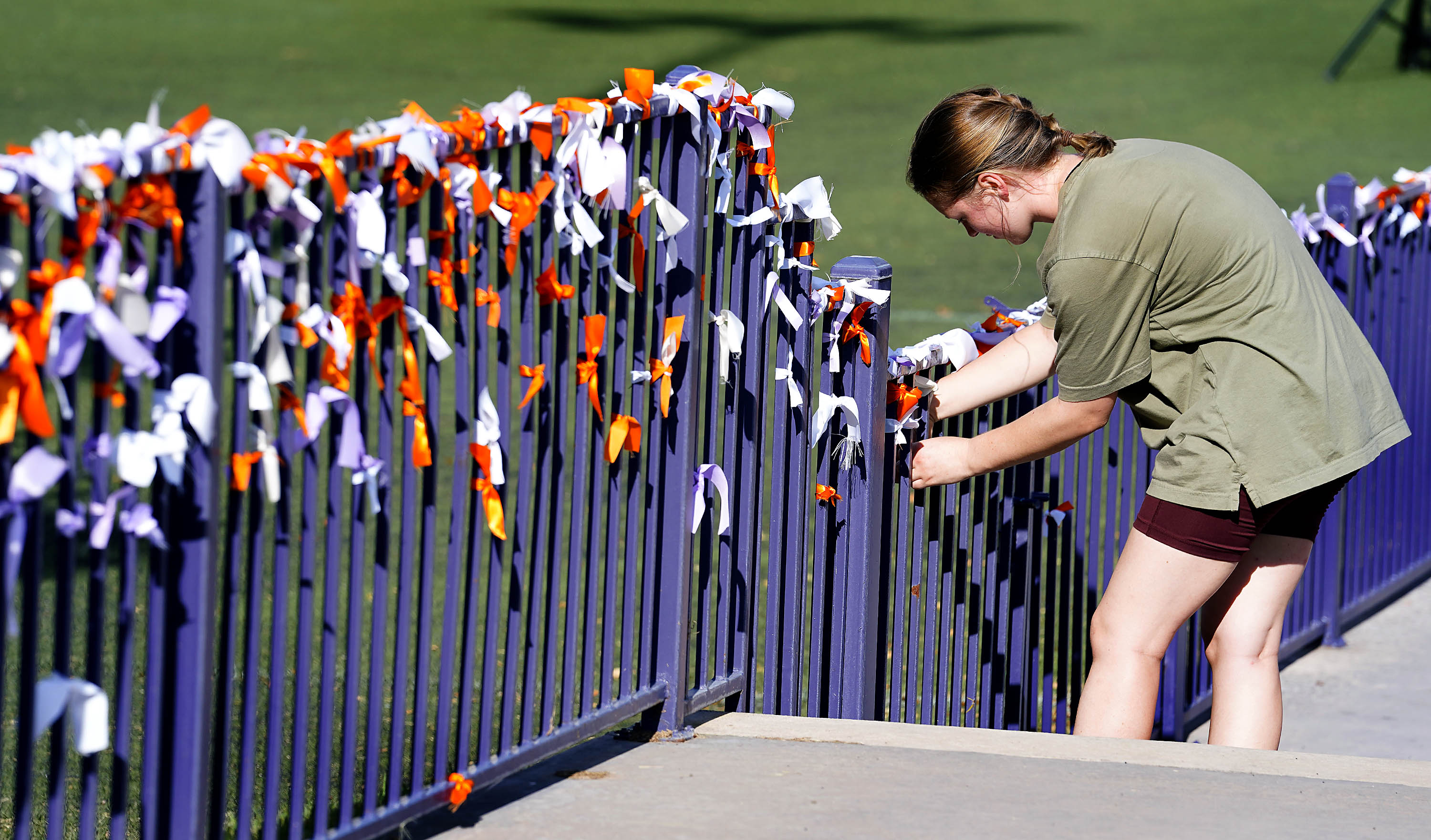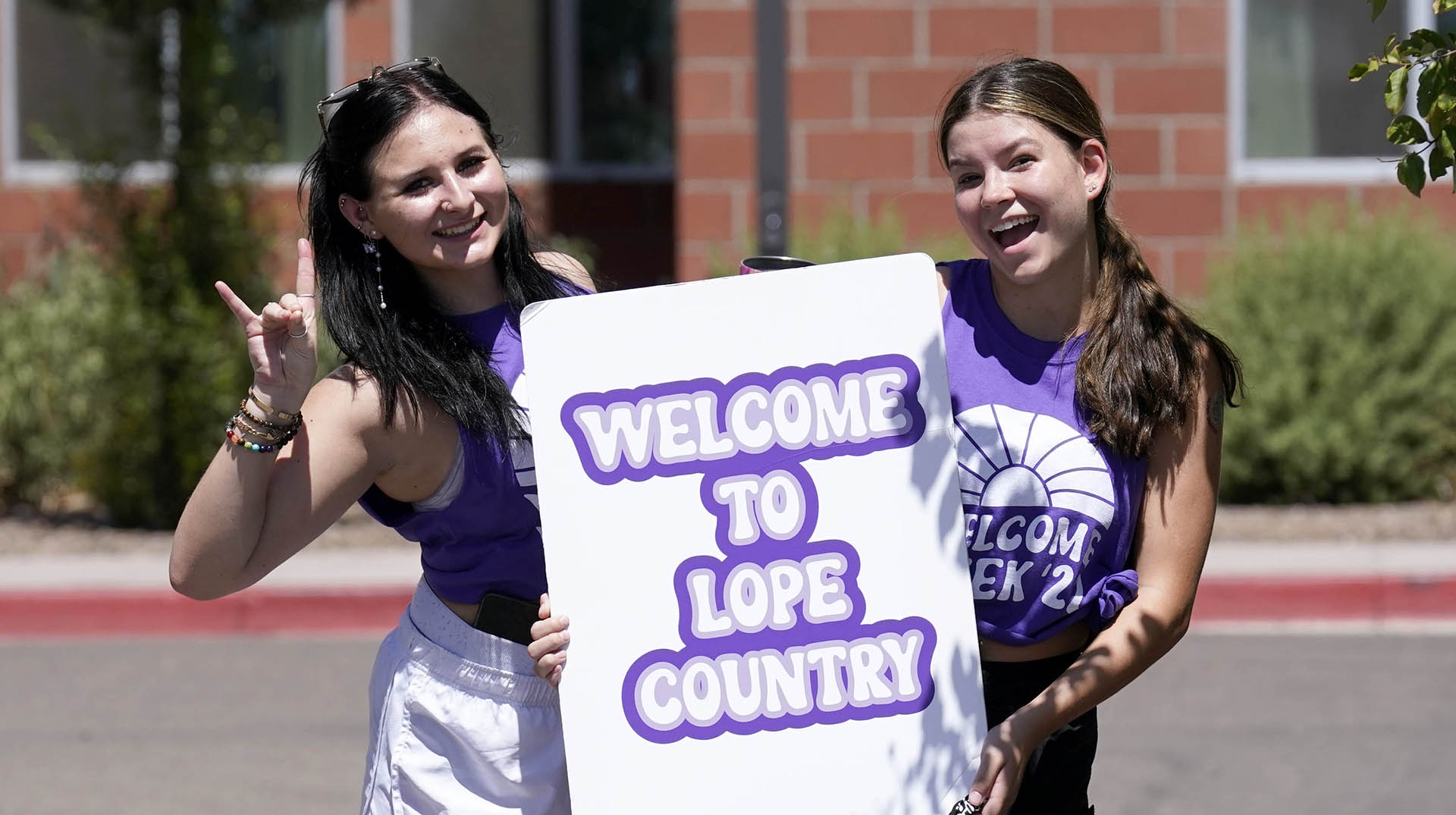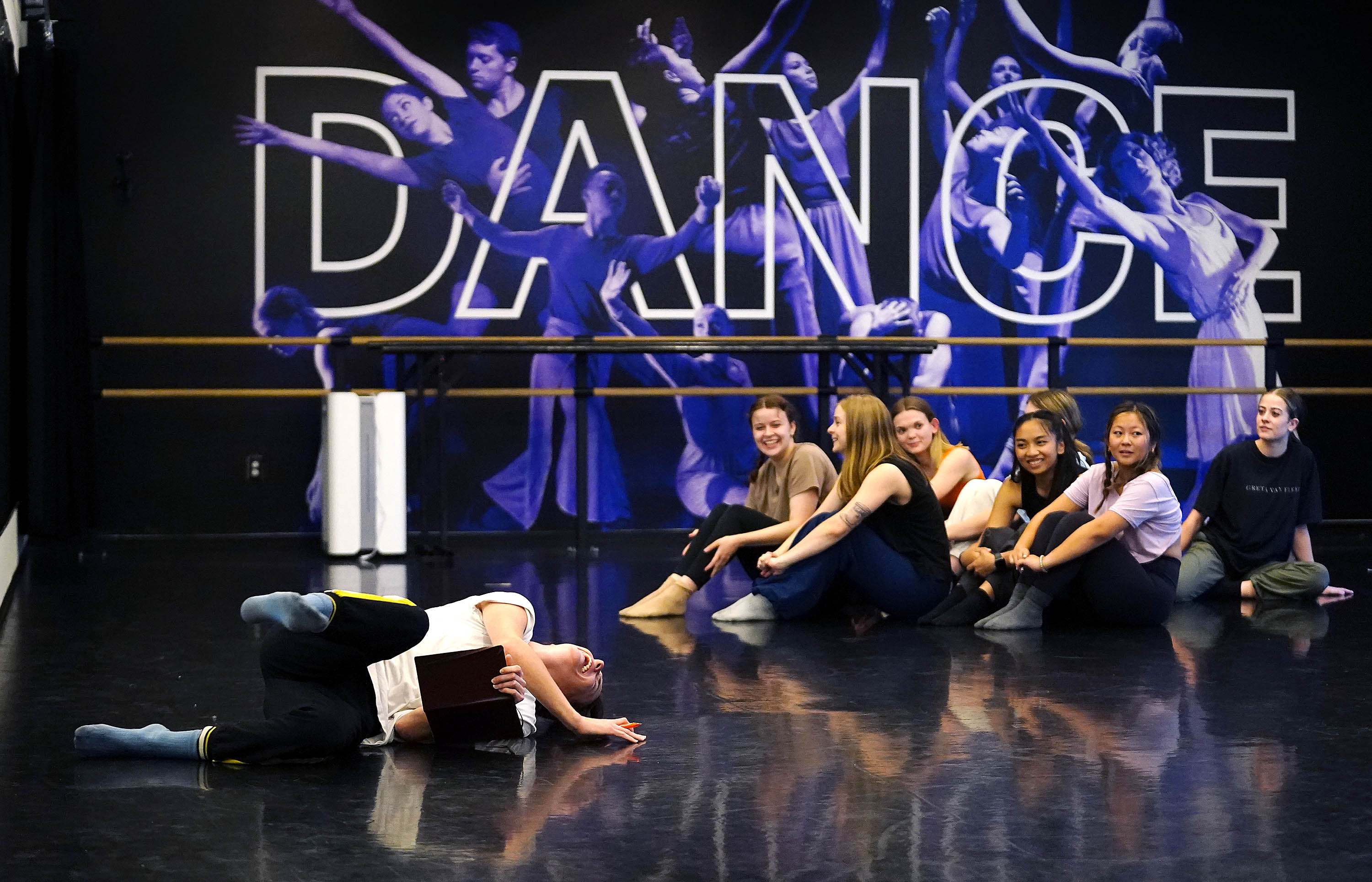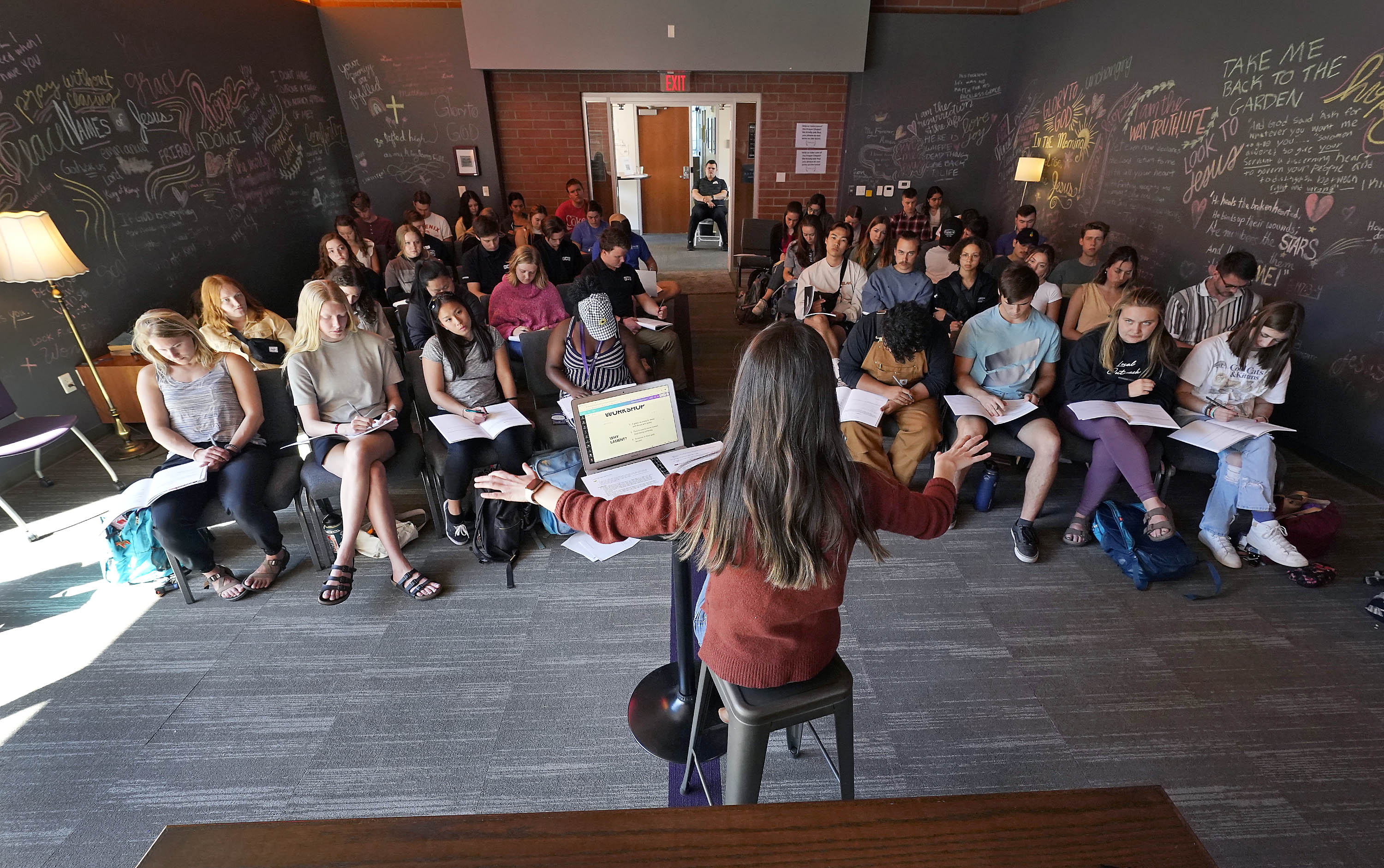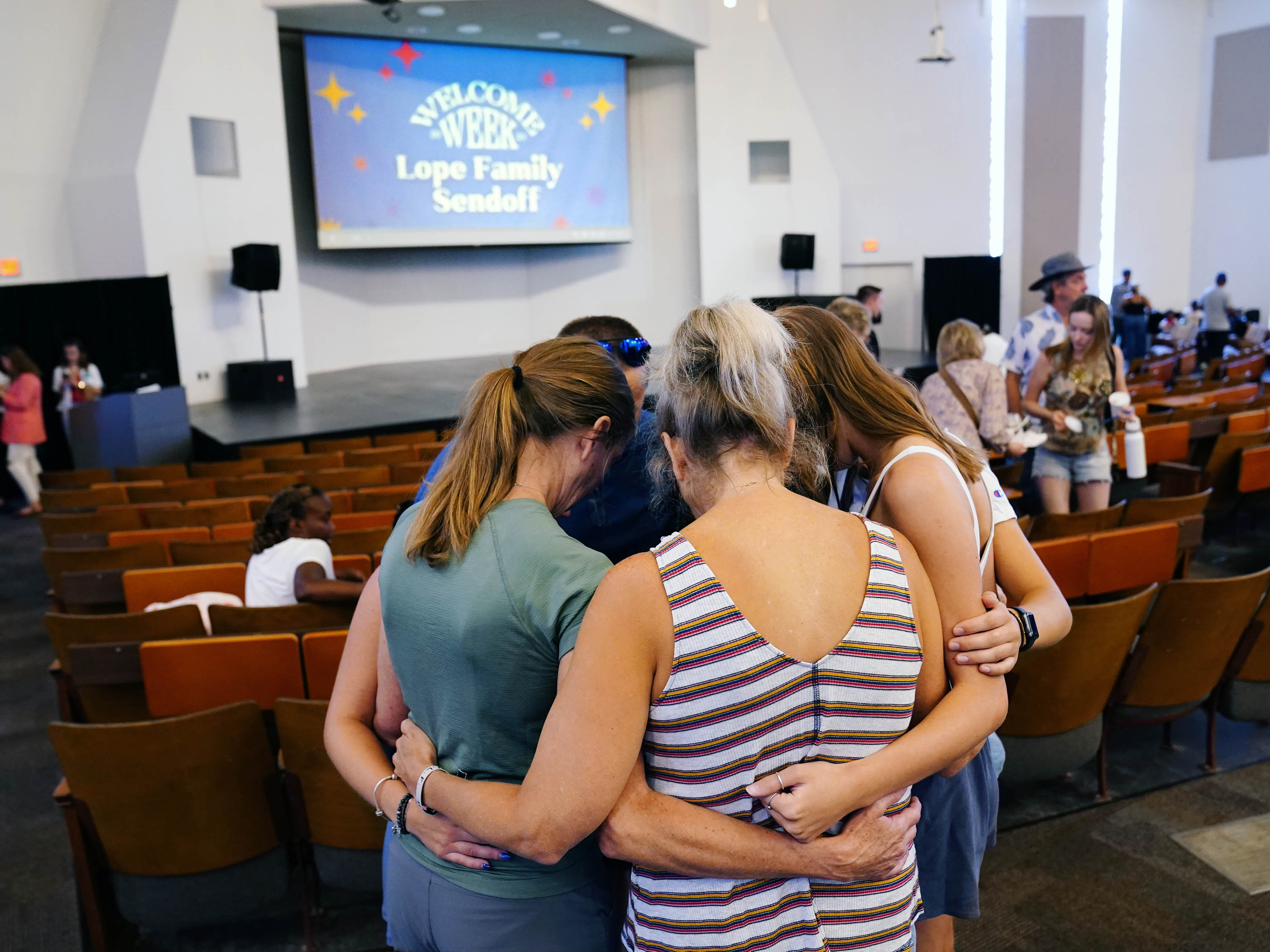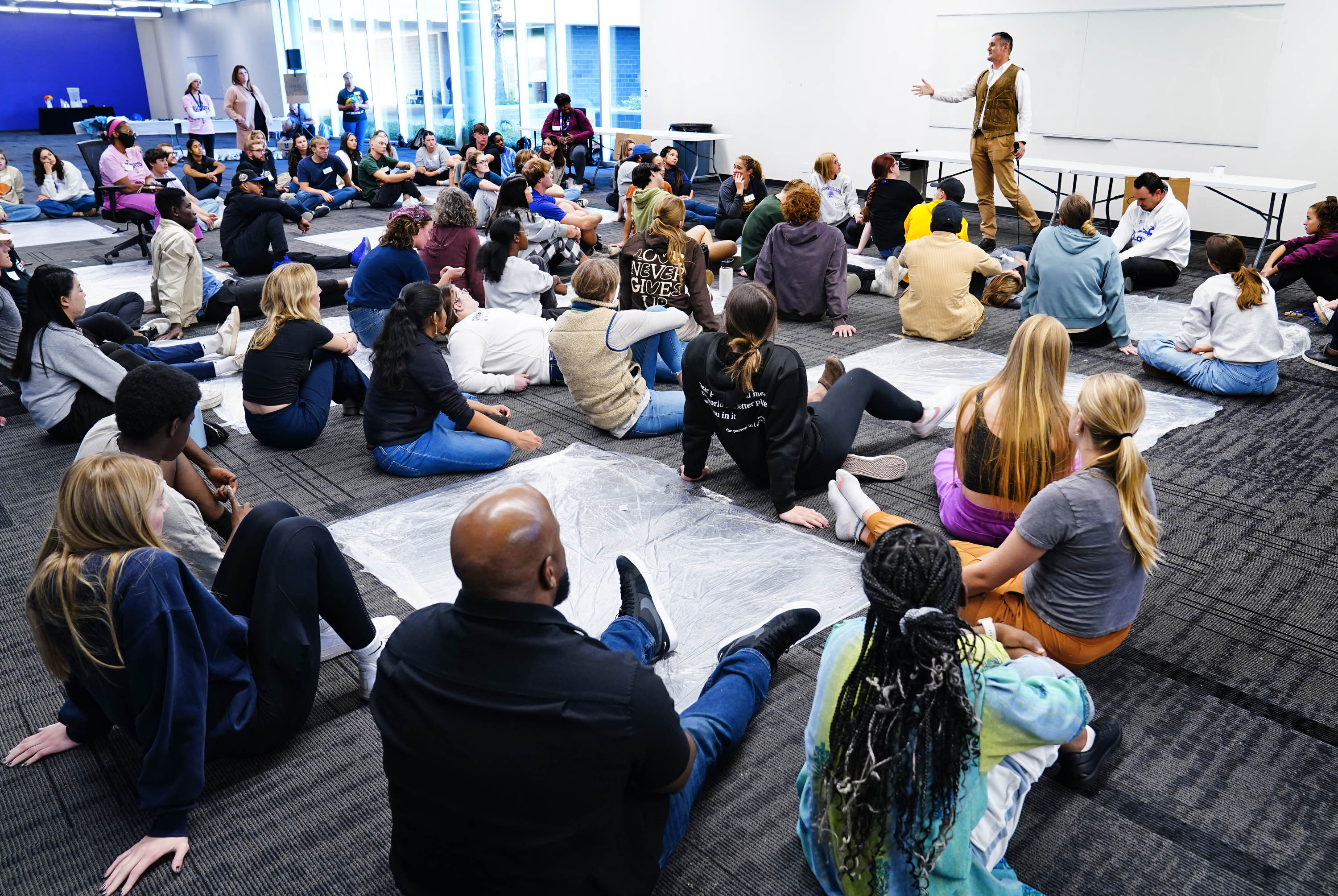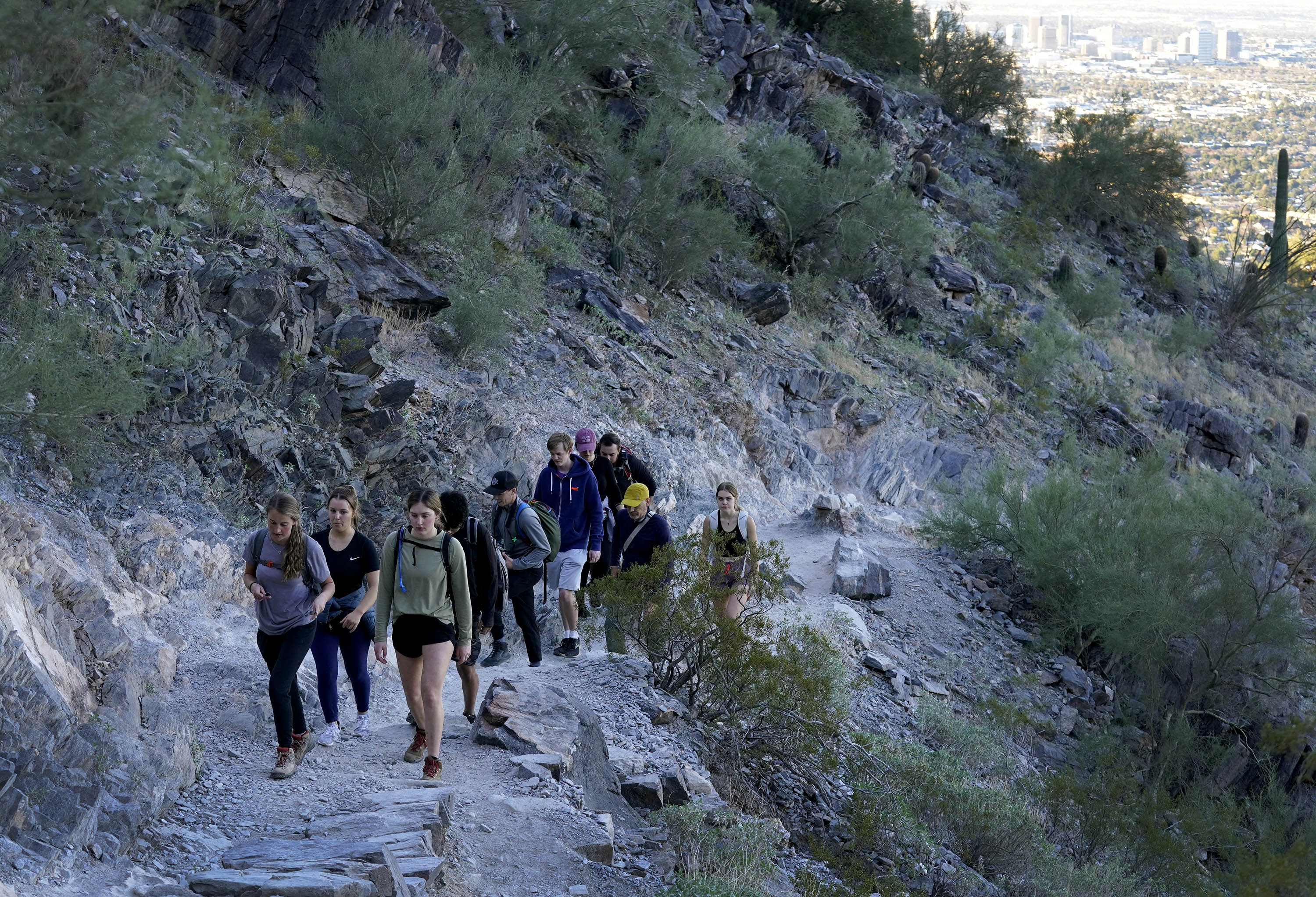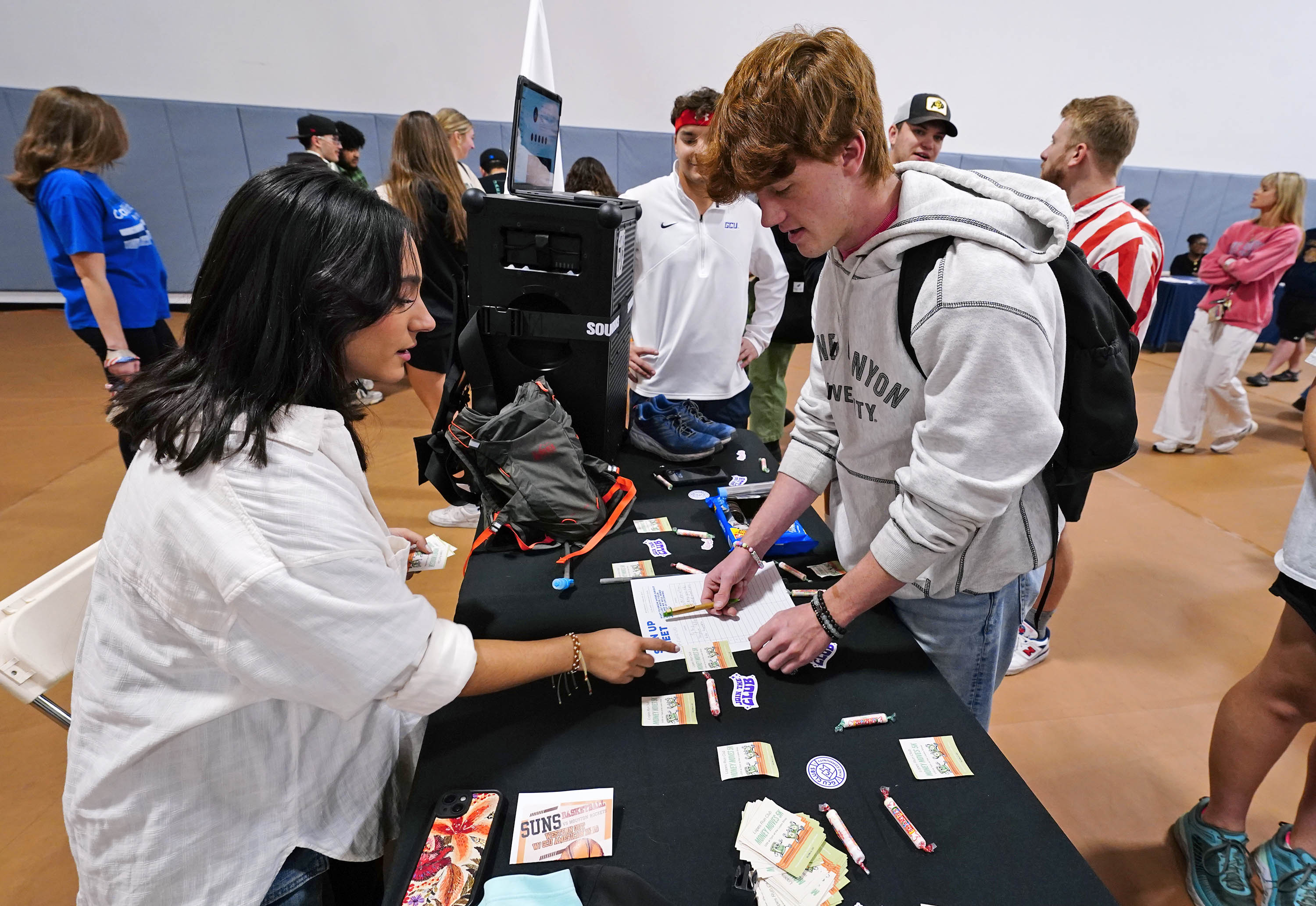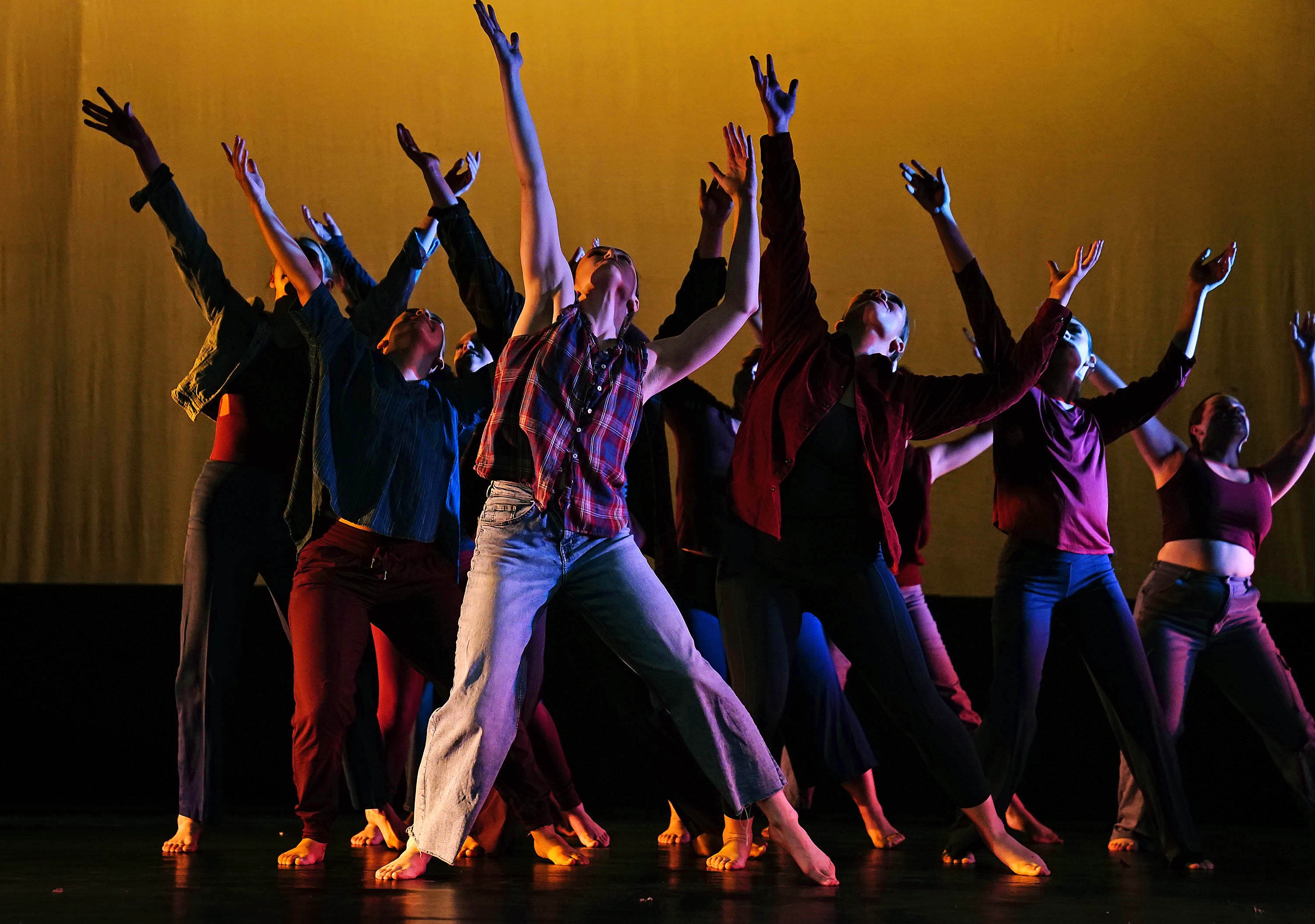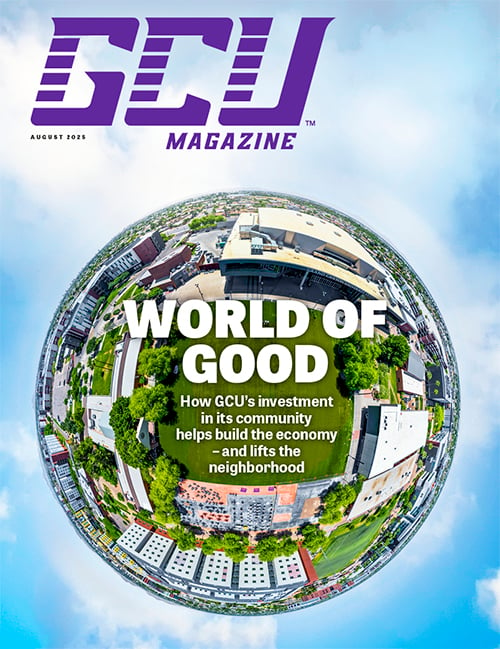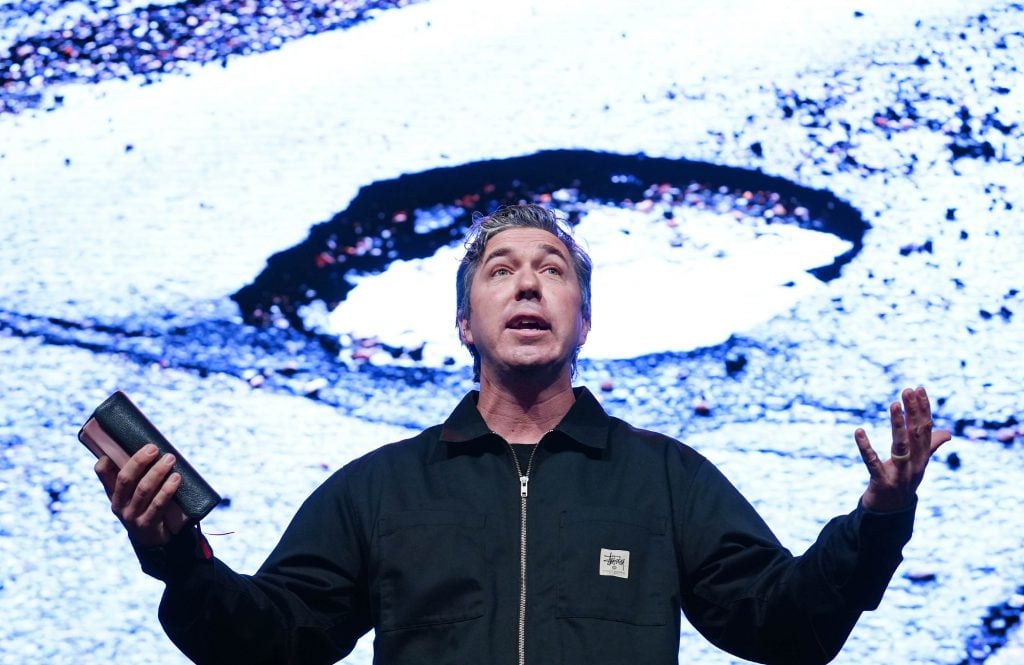
Photos by Ralph Freso / Slideshow / Chapel livestream
Steve Carter has a unique way of making God’s Word relatable. It’s fair to say that the assembled Grand Canyon University students at Chapel on Monday morning had never heard their impulses and their challenges – heck, their lives – laid out quite like this.

It probably wouldn’t surprise them to know that one of Carter’s books is titled, “The Thing Beneath the Thing: What’s Hidden Inside (And What God Helps Us Do about It).”
That was the “Thing” he used to wrap up a thought-provoking 34 minutes of down-to-earth wisdom that began with “Do you ever wonder why people do what they do?” and ended with this aphorism he got from a friend: “If you ever find yourself getting hysterical, it’s most likely historical.”
Right from the start, Carter was telling tales filled with telltale signs of how God works through us and what we can do to better understand ourselves and each other. It all stemmed from what the apostle Paul wrote in Romans 7:15:
I do not understand what I do. For what I want to do I do not do, but what I hate I do.
Carter, who recently moved back to Illinois after serving as Teaching Team Pastor at Mission Community Church in Gilbert, said it leads to another question he can’t get out of his mind: “Why do I do what I do?” And he wishes he understood it better when he was younger.
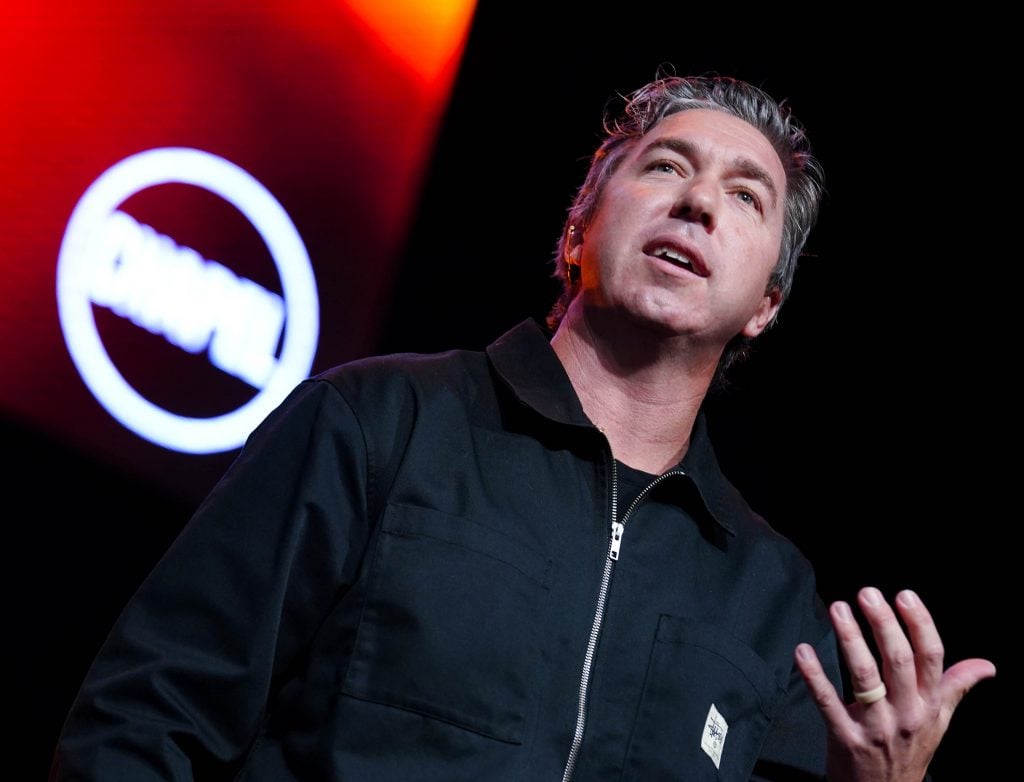
He recounted the time, years ago, when he left his wife and 9-month-old in the car on a snowy Michigan night because two youngsters had hit his windshield with a chunk of ice. Blind with rage, he decided to chase them down.
He got soaked when he failed to leap over a puddle of ice-cold water, then ran across a snowy field and sleuthed out the garage door closing at their house. “Because I watch CSI, I know what to do,” he joked. But once he finally was able to confront them, he came to his senses.
“I’m standing there, freezing cold, and I just have this sense that God’s going, ‘What are you doing? What’s really going on?’”
When an older man opened the door and summoned the two perpetrators, Carter discovered they were sixth-graders – and he was a middle school pastor.
“Hey, that was a nice shot,” was all Carter could utter before walking back to his wife and child, filled with shame.
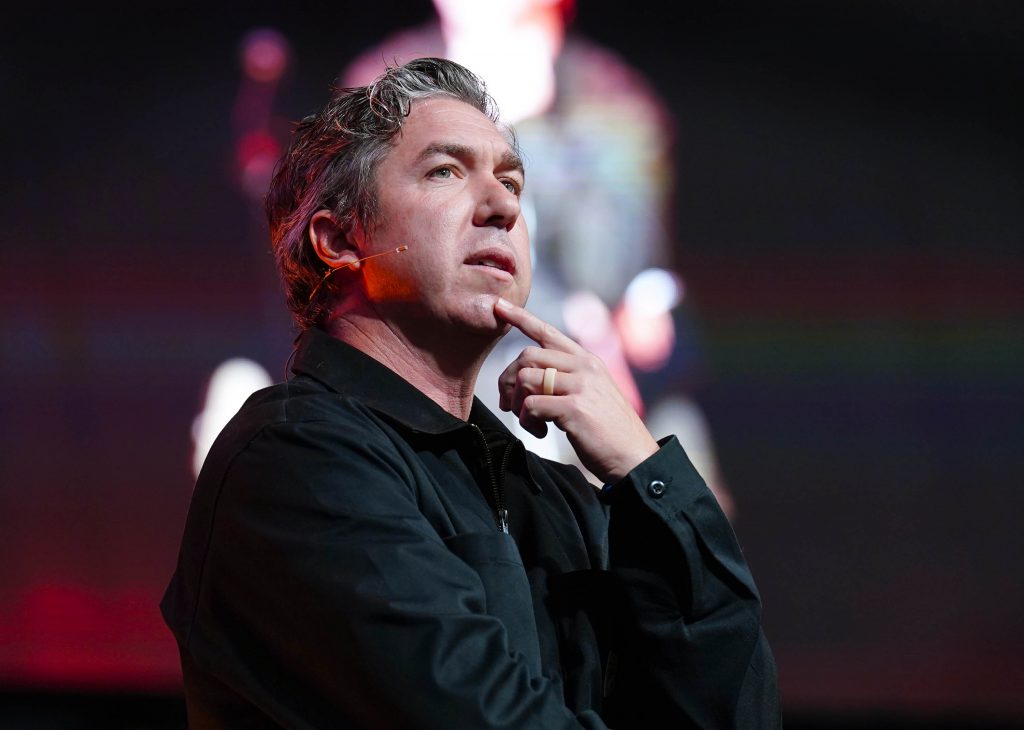
As Carter analyzed why he did such a thing, he realized he had been triggered by several underlying circumstances: He was moving his young family to California, his father had been diagnosed with leukemia, he probably had seen his grandparents for the last time and the people in line to buy his house had just backed out.
| NEXT CHAPEL (11 a.m. Monday, Nov. 7, GCU Arena) |
| Musical Worship Chapel, led by Faith Christian Center |
“I didn’t know how to process that pain,” he said. “I didn’t know how to talk about that pain even though I had my best friend beside me in my wife and I had my family who loved me. I did not know what to do with that.
“And then someone – a sixth-grader – threw a chunk of ice at my car and gave me the invitation of release.”
Which led him to his larger point:
“Every single day, every single day, someone’s triggering you. Someone says something, someone doesn’t say something, someone doesn’t respond to your text, someone doesn’t give you … the encouragement that you were looking for, someone doesn’t follow through, somebody lets you down, someone from the past comes back into the picture, someone who hurts you comes back into the picture, and all of a sudden all of these ancient stories that are within your body that you’ve never had the courage to deal with get released.”

Carter demonstrated his point by teaching from Chapter 3 of the book of Esther. Haman, who had been elevated to a rank above all other nobles by King Xerxes, decided he wanted to slaughter all the Jews simply because one of their own, Mordecai, wouldn’t kneel before him.
It’s a classic example of the types of overreactions that have continued to play out in human history and still haunt the world today. Carter noted that he visited Rwanda after its 1994 genocide and saw the effects of such horror.
He worked backward from the final words of the chapter, in Verse 15:
… the city of Susa was bewildered.
Most telling was what Haman said to the king:
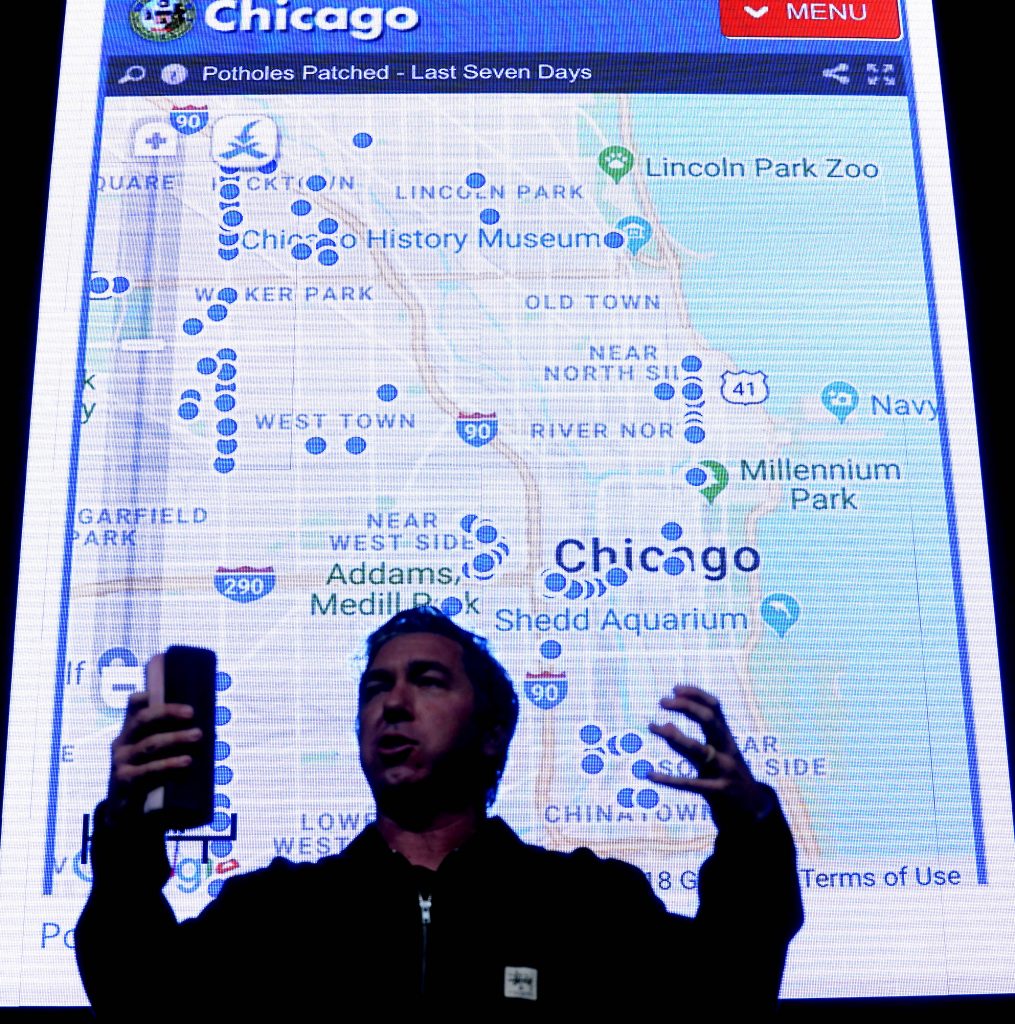
“There is a certain people dispersed among the peoples in all the provinces of your kingdom who keep themselves separate. Their customs are different from those of all other people, and they do not obey the king’s laws; it is not in the king’s best interest to tolerate them.”
Sound familiar in today’s divided world?
Carter pointed to things we see daily, and not just political strife. People lash out everywhere – on the roads, in the media, in sports, you name it. Those are the triggers, and people use them as an invitation to react.
He likened that trend to the potholes that pop up so frequently in his native Chicago that there’s a special number to report them – 137,000 were filled in 100 days, he was told when he called 311. The fear is that an unrepaired pothole will become a sinkhole, a perfect metaphor for Carter’s message:
“What it means to be human is to experience pain. And every one of us, no matter if we grew up in the best Christian household or we grew up in a place that was fraught with trauma and abuse and struggle and abandonment and betrayal, every one of us has a whole bunch of potholes.
“Every single day, people get closer and closer and closer to our potholes. And we have the chance to actually, by faith, by choosing a healthy and more holistic life, try to lean in and bring healing to those potholes.”
Instead, we often just try to manage them, even when God, in His kindness, brings people into our lives as another invitation to fix those potholes once and for all rather than continue to react negatively.
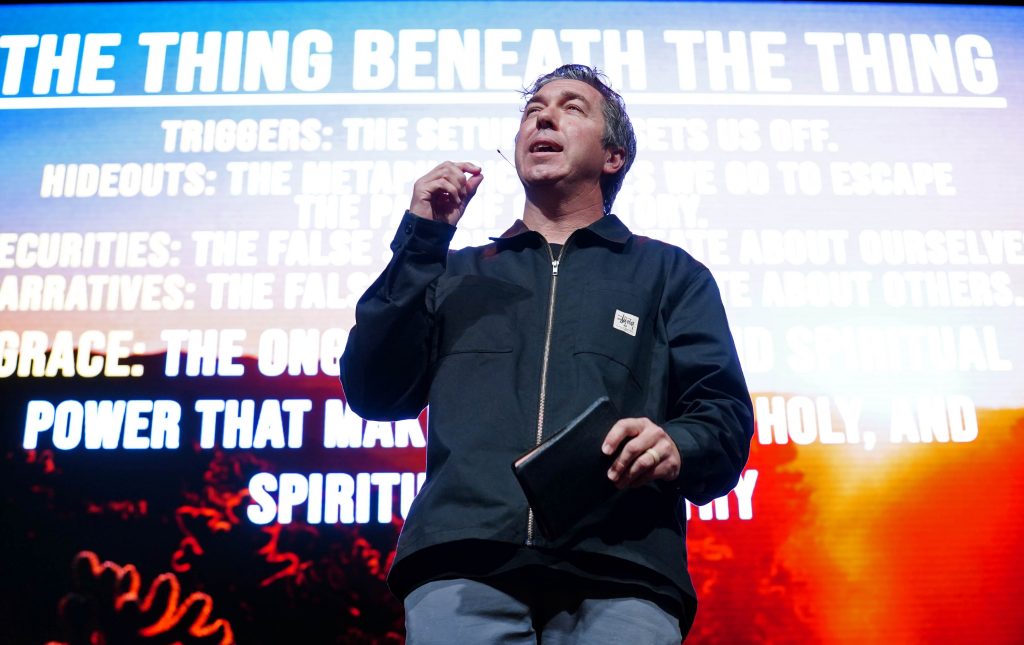
That led him, appropriately, to "The Thing Beneath the Thing." It’s a saying in Carter’s household about how our past slights and disappointments can turn potholes into sinkholes that affect everyone around us.
Carter summed up the idea in five categories that spell out T-H-I-N-G:
- Triggers: The setup that sets us off. Emotions have movement, he said.
- Hideouts: The metaphorical places we go to escape the pain of our story. Some are even socially acceptable, such as TV, sports or social media, and some are destructive, such as substance abuse.
- Insecurities: The false stories we create about ourselves.
- Narratives: The false stories we create about others – often generalities about entire groups (see: social media).
- Grace: The ongoing process and spiritual power that makes us whole, holy and spiritually healthy.
He urged students to fix their potholes before they have children or are running a business. Do that, he concluded, and it will serve them well down the road:
“I promise you’ll begin to have a better understanding of why you do what you do, and the decisions that you make won’t be out of fear or pain, but they’ll be made out of grace and freedom and breakthrough.”
Contact Rick Vacek, Senior Manager for Internal Communications, at (602) 639-8203 or rick.vacek@gcu.edu.
****
Related content:
GCU News: Chapel message: Come to God just as you are
GCU News: CityServe leader: Move toward those in pain
GCU News: God's work isn't for meek, Dyer tells Chapel
GCU News: What's in a name: God knows, says Griffin
GCU News: Fiery talk burns with passion for living God
GCU News: Welch keeps it real, shows his zeal for Jesus



